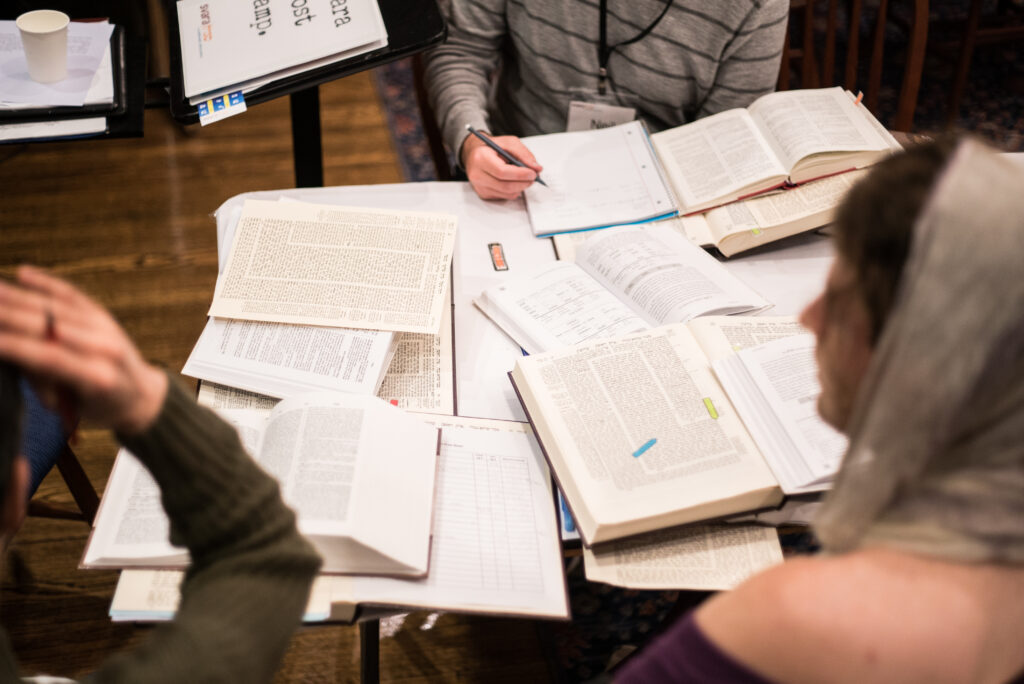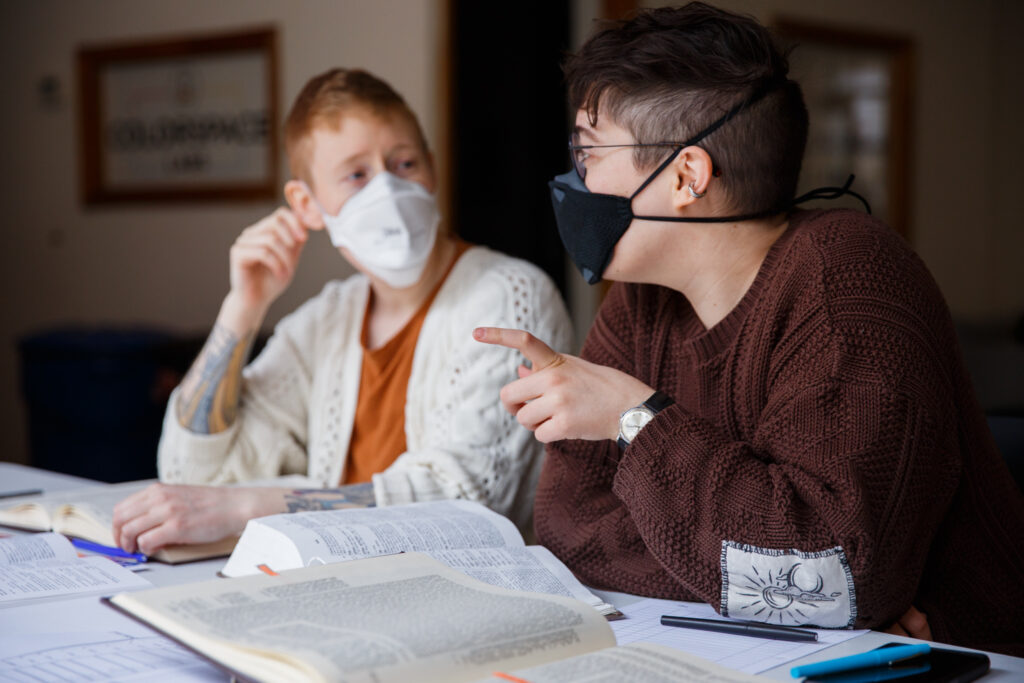With Purim coming in less than a month, I find myself returning to the idea that the whole world gets flipped upside down this time of year. It often feels like the world is already quite upside down, and I’m struggling to find excitement at the prospect of more flips. Purim’s spiritual summersault recently brought to mind a midrash from Shabbat 88a, in which Rav Avdimi bar Khama bar Khasa claims that in Exodus, when the text says that the Israelites stood at the “lowermost part” of Mount Sinai, this actually means that Hashem lifted up Mount Sinai to hover above them, and overturned it “like a tub”! Hashem then tells the Israelites that it would be beneficial/excellent (“מוּטָב”) if they accept the Torah. Then, unfortunately, Hashem follows this up with the threat that if they don’t accept it, that very spot would become their burial site. Yikes!
If you’re thinking that it seems unfair that the Israelites had to receive the Torah and all its mitzvot under such duress, you’re not alone. Rav Acha Bar Ya’akov chimes in with worry: ”מִכָּאן מוֹדָעָא רַבָּה לְאוֹרָיְיתָא” / ”From here there is a substantial protest/caveat to Torah!” Rav Acha is implying that if the Israelites opted into the brit/covenant with Hashem under threat, Jews could claim that this contract is non-binding! By this logic, our obligation to follow this mitzvot of Torah has been null and void the entire time. It bears repeating: Yikes! Or, perhaps, Yippee!
Rava then chimes in, none too pleased with this possibility. He offers that even if that were true, the Jews eventually took on their obligation to Torah properly under Ahasuerus’ reign. He quotes a small chunk of Meggilat Esther 9:27 that says “קִיְּמוּ וְקִבְּלוּ הַיְּהוּדִים“ / “The Jews ordained and received it.” If we are to understand Rava’s point at surface value, that “it” is Torah! However, it’s not quite so simple. If we read all of verses 23-27, we’ll find that the text isn’t talking about Torah at all! It’s discussing the Jews taking on the new obligation of observing Purim, everywhere and every year. So how is Rava making the claim that verse 27 is talking about Torah? In 9:23, the Jews simply kibel/receive the obligation to observe Purim. However, in 9:27, the Jews don’t just kibel, they first kiyemu! This word comes from the root koof-mem-reish, which at its core means to stand or rise. However kiyemu/קִיְּמוּ is in the binyan piel, which shifts the meaning to fulfill, confirm, ratify, preserve, explain, settle, or fix. It seems that Rava is claiming that the addition of kiyemu isn’t superfluous —Torah could never be! Rather, it’s secretly telling us that with one word, the Jews are not just ratifying the obligation of Purim, but also properly ratifying the obligation to the Torah and its mitzvot.
So who’s right? Rav Acha Bar Ya’akov or Rava? As it so often goes in Rabbinic texts, there’s no one telling us who wins the argument. Instead, the two presented opinions are left for future generations to deliberate over. Going Option 3 allows us to think beyond binaries, and build upon what our tradition has left for us. Perhaps obligation wasn’t at the root of Rav Acha’s practice, and as such he was fine reading obligation out of the text. But for Rava, it seems the emotional stakes were higher. Rava needed obligation, so he read it into the text. Rava doesn’t argue that we took on obligation at Sinai. Rather, he argues that it doesn’t matter if we didn’t, because eventually we take it on during the Purim story. In Meggilat Esther, the obligation at hand is prescribed by Mordechai—not Hashem. The moment the Jews take on the responsibility of mitzvot is at the word of a fellow Jew, a peer, rather than at the behest of Hashem at Sinai. From this we might take away that our obligation to tradition, Torah, and the Divine is rooted first and foremost in our obligation to one another.
From Rava’s approach we can learn how to say “yes” to obligation. We are empowered to cherry-pick, interpret, re-interpret, and translate the texts in order to find a version of obligation that leads us down the right path—and that path might look different over space and time. From Rav Acha’s approach, we learn that we can say “no” to obligation altogether. When we find things in Jewish text/practice that go against our moral understanding of how to be in right relationship, we can point out the flaw boldly and honestly. When our leaders tell us to do something that doesn’t sit right with our neshama (Looking at you, Mordechai!); when our own still, small voice nudges us in a different direction, we have the right to say, “I won’t take on this obligation under duress.” We can’t do what’s wrong just because we are afraid of the repercussions of doing what’s right. From these two ancient Rabbis we learn that Tradition and Torah are all just as obligated to us as we are to them.







